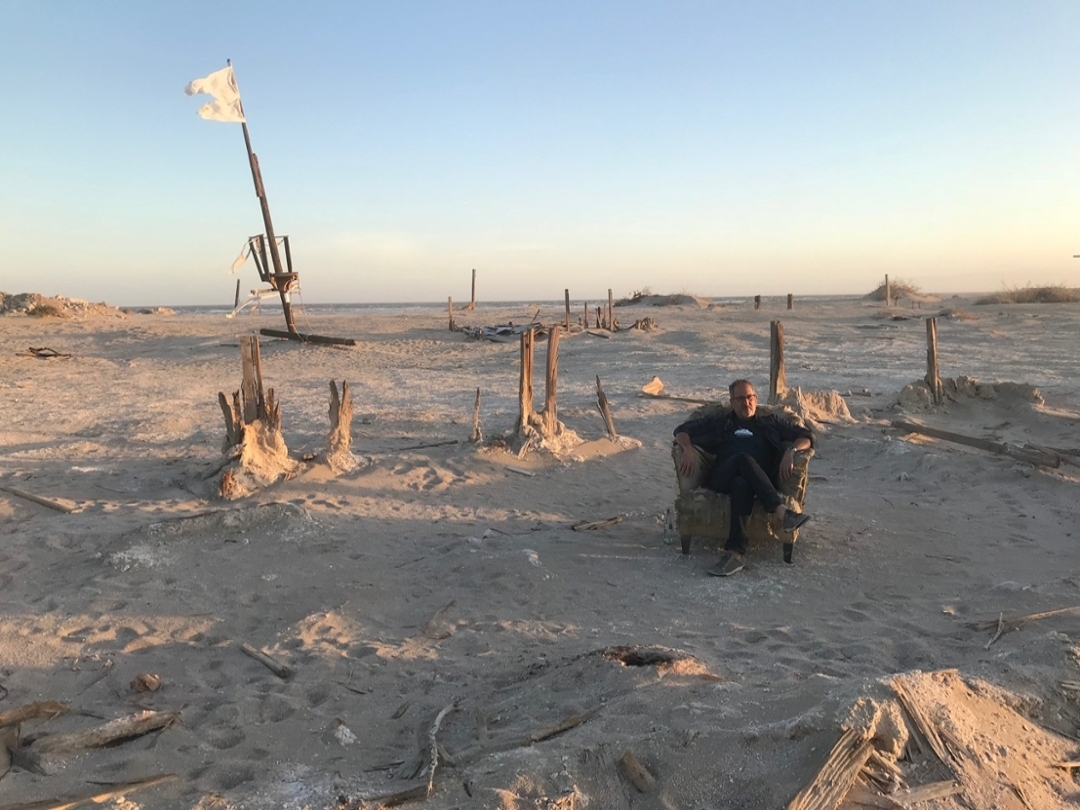
USask-led international film festival launches with PBS documentary featuring water expert Jay Famiglietti
SASKATOON – A six-week film festival and competition showcasing internationally acclaimed documentaries, features and independent shorts—including films by students from Saskatoon schools—was launched this week by the Global Institute for Water Security (GIWS) at the University of Saskatchewan (USask).
By Mark FergusonThe festival, held in partnership with the film and water science communication organization Let’s Talk About Water (LTAW), kicks off with a feature from the PBS-produced series, H2O: The Molecule that Made Us, featuring GIWS Executive Director Jay Famiglietti, who led a 15-year NASA satellite mission to map freshwater around the globe.
“As scientists, I firmly believe that we all need to be better science communicators and using film is a great way to do this,” said Famiglietti. “What’s really exciting about the festival this year is that we are accepting short films for the International Water Film Prize from filmmakers from around the world, and for the Youth Prize from Saskatoon high school and elementary students.”
Originally to be shown at theatres in Saskatoon, due to the COVID-19 pandemic, the films will now be shown for free through a virtual theatre on the LTAW website.
Festival organizers expect nearly 100 International Film Prize entries by the May 29 deadline, and about 40 films from students from Saskatoon schools. With a grand prize of $10,000 USD for the International Film Prize, the festival is attracting filmmakers from across the globe, including featured shorts for the first week that includes films from Algeria and Uzbekistan.
The format for the competition calls for short films that are two minutes in length and that tell a story about water issues.
Famiglietti said he is excited to see what filmmakers have to say about water.
“Water means so many different things to so many people. That’s what we really wanted to challenge people to share in this competition—can you tell a powerful story about water in just two minutes,” said Famiglietti.
“During the festival, we’ll show these short films alongside some large budget feature films and documentaries, some of which have been produced by National Geographic, PBS, and the National Film Board of Canada. We think that through working with Let’s Talk About Water, we’ve created a great venue for both contributing and watching films about water.”
The competition and festival are part of an ongoing film and water science communication effort that was started by Linda Lilienfeld, an American film and picture researcher based out of Washington, DC.
“The purpose of Let’s Talk About Water is to foster communication between water scientists and the general public,” said Lilienfeld. “And to find a way to make it fun, because that’s the best way to learn.”
The first LTAW event, co-led by Famiglietti and Lilienfeld, took place at the University of California at Irvine in 2009 and was very successful, said Lilienfeld. Since then, there have been 45 festivals in nearly as many cities around the world.
“It has been a very successful way in bringing scientists together with students and the public using film as a jumping-off point to stimulate a conversation about water issues affecting people all over the world,” said Lilienfeld. “So sit back and enjoy the programs—they’re free, they’re streaming, and you can watch them right in your own home.”
For more information and to check out the film festival, visit www.letstalkaboutwater.ca or www.water.usask.ca
-30-
For more information, contact:
Mark Ferguson
USask Communications Specialist
Global Institute for Water Security and Global Water Futures
306-966-7135
m.ferguson@usask.ca
Victoria Dinh
USask Media Relations
306-966-5487
victoria.dinh@usask.ca
Article re-posted on .
View original article.

